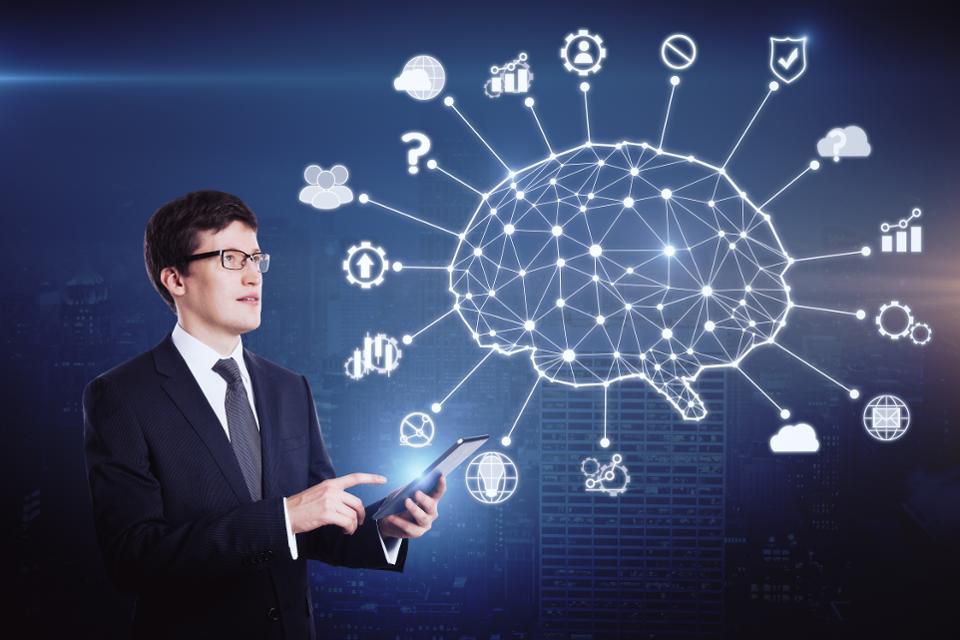Source – forbes.com
As we enter into the next revolutionary age, the age of artificial intelligence (AI), it’s no surprise fear often guides the mainstream narrative. Fear of massive job loss and millions unemployed as AI and robots are implemented on a global scale. But as the CEO of Mondo, a niche tech and digital marketing staffing agency, I envision this future as one of major job creation and opportunity. This future, however, is only possible if we work together to guide AI and robotics innovation responsibly throughout all industries.
Take A Note From History
To see proof of why AI won’t take all our jobs, you only need to look at history. Predictions of doomsdays for the workforce are common during ages of innovation, like the Industrial Revolution. Although these predictions are common, they’re also unsubstantiated. Whenever there is a major advancement in how we work, there is a fear that all the jobs will go away. While there is always an impact, the tail-end of the Industrial Revolution, for example, led to the assembly line; the workforce remains stable throughout these changes because new jobs are created as a result.
Automation is a perfect example of recent tech innovation that led to more jobs, rather than fewer. I find this to be especially true in the digital marketing space as companies began (and continue) to hire technology-specific experts to help them best utilize the automation tools they’ve integrated. The digital marketing roles they are hiring for, the roles my company recruits for, were nonexistent a few years ago and are thus a direct result of the innovation of automation for business purposes.
A recent study surveying 992 companies in a variety of sectors and countries with revenues of $500 million that are implementing AI as either a pilot project or “at scale” by technology consulting group Capgemini, supports the belief that the integration of AI will create jobs, rather than destroy them. 83% of respondents in the survey reported new jobs were created as a result of AI implementation. Additionally, 63% reported AI had not destroyed jobs in their organization. These findings support the recent analysis by Gartner that AI will create 2.3 million jobs in 2020 while eliminating 1.8 million.
It also comes down to basic economics. If companies replace all of their employees with AI or robots and a large part of the workforce becomes unemployed, there will be no consumers left to purchase the products these companies produce.
It’s Not Humans Vs. Machines, It’s Humans And Machines
To drive job creation rather than job loss through the adoption of AI, the responsibility will fall on innovators and industry leaders to open new windows of opportunity by training workers for new and emerging skill sets that will grow in demand as AI becomes more widely adopted. Society as a whole also needs to adjust the way we define and stereotype the near, AI-driven future. We need to change the perception of the future from humans vs. machines to humans and machines working together to accomplish a task.
A recent McKinsey study found that few occupations are fully automatable, but 60% of all occupations have at least 30% technically automatable activities. Alphabet’s Executive Chairman Eric Schmidt cited the study at the 2017 Viva Tech conference in Paris when he contended that the problem with AI wouldn’t be massive job loss but instead would be the creation of new jobs with AI-driven components that can’t be filled, adding to the tech talent gap in the U.S. as demand for tech-based skill sets continues to outpace available talent.
The key to prepping the current workforce for this is AI augmentation, arguably the greatest AI benefit and job creator. AI augmentation is the combination of human and AI, where the two work together to supplement each other and make up for what the other lacks. As populations are getting older, the total number of people working has gone down, which means the key to continued economic success is boosting productivity through AI augmentation.
We need to look at AI as an opportunity to find ways to do our jobs more efficiently and effectively, without replacing the human component. Instead, AI can free the individual up to focus on tasks they do better than an AI system.
The only potential job disruption on a major scale resulting from AI will be a lack of qualified talent skilled in collaborating with AI components, tools or systems due to a lack of training and adequate educational opportunities available now. To prevent the doomsday AI fears keeping us all up at night, we need to start investing in and providing opportunities to our current employees now so they can begin developing the AI-driven skills we’ll rely on later.
